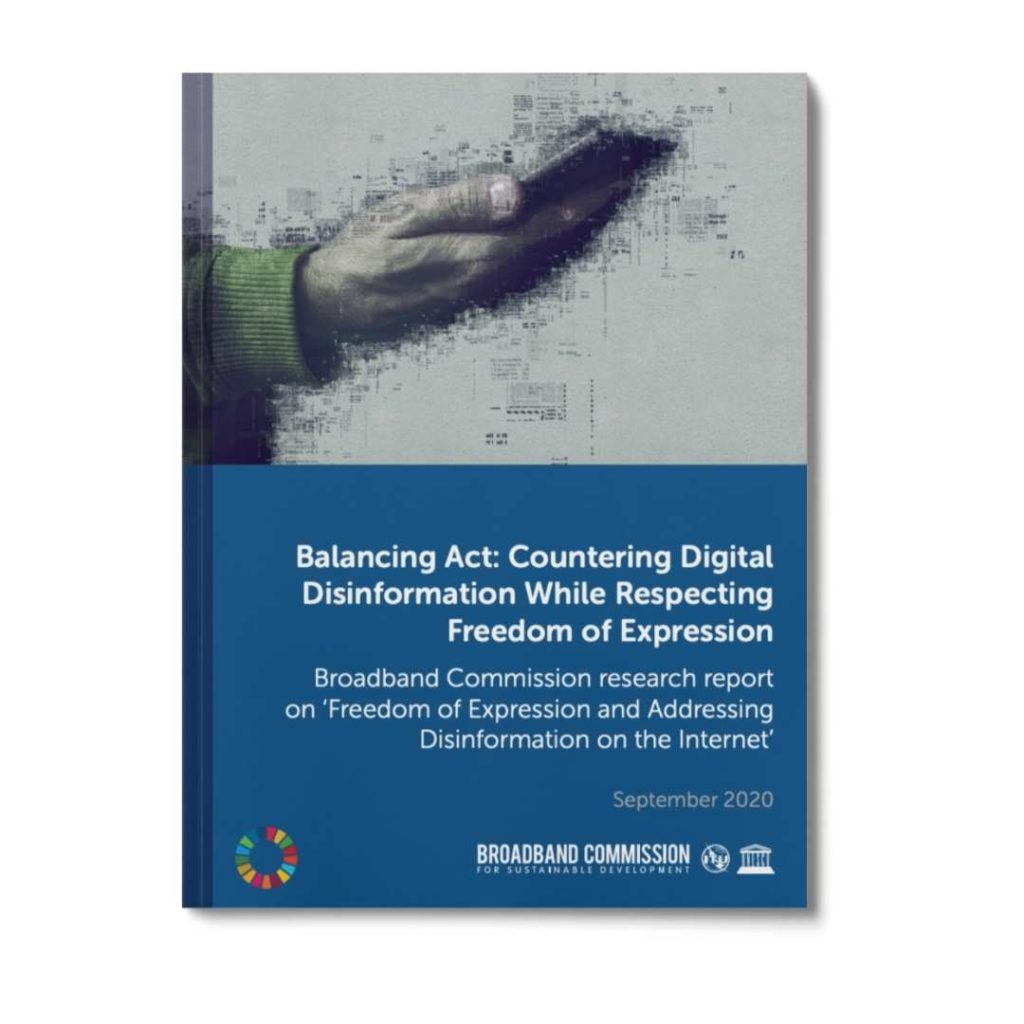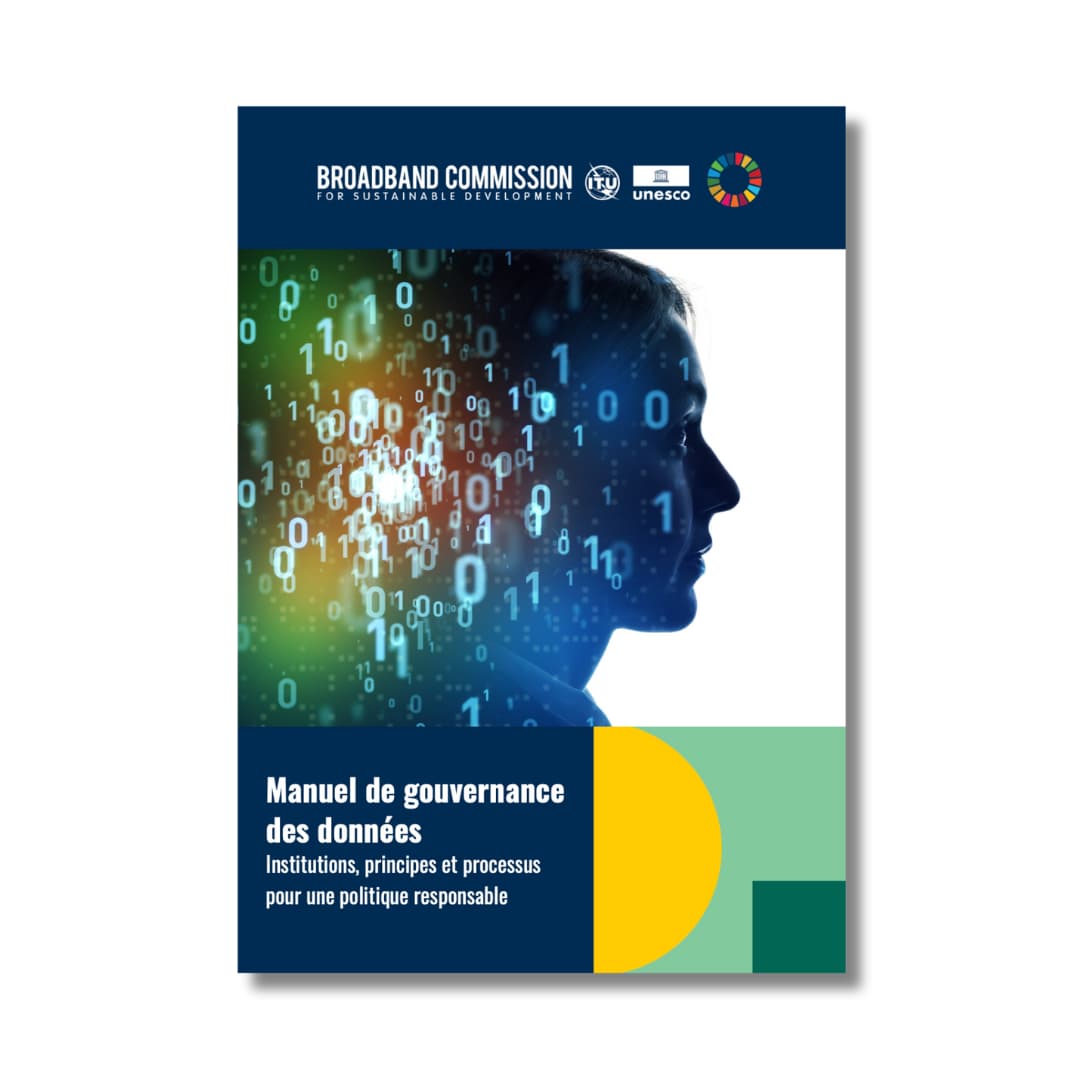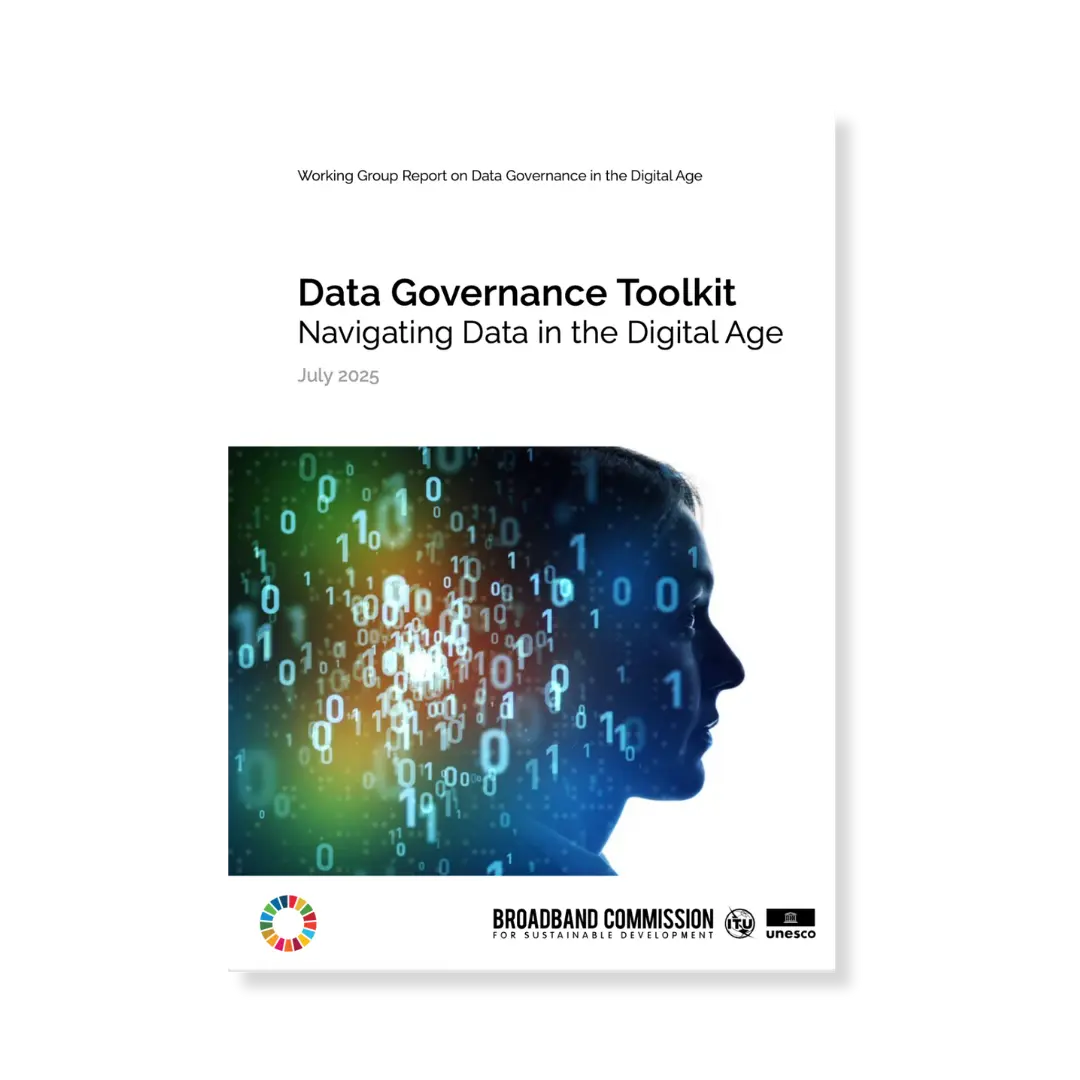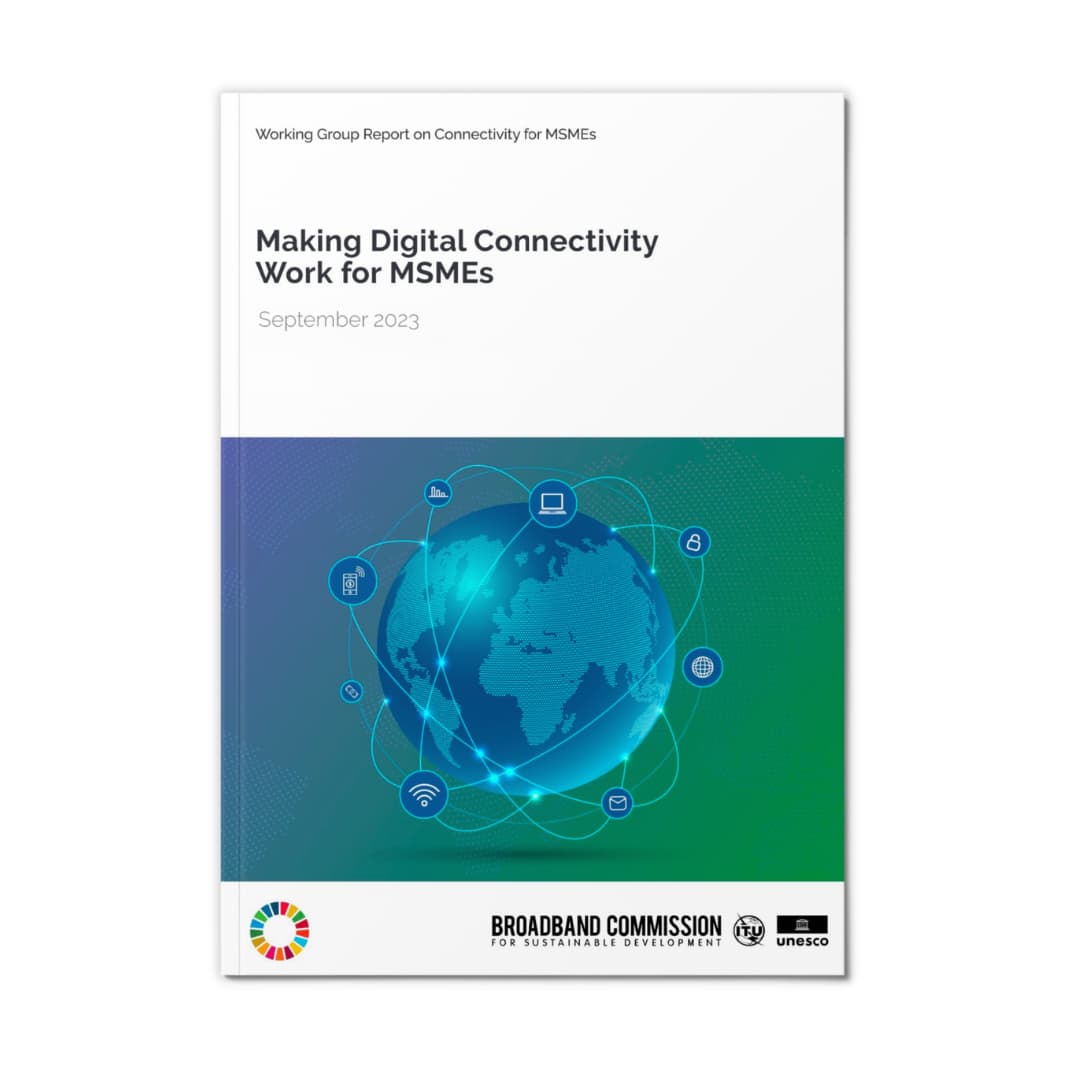The need for action against disinformation has been recognised at the ITU/UNESCO Broadband Commission for Sustainable Development.
The Commission created a Working Group on Freedom of Expression and Addressing Disinformation, that in turn commissioned this comprehensive global study in 2019. The research underpinning this study was conducted between September 2019 and July 2020 by an international and interdisciplinary team of researchers.
Balancing Act: Responding to Disinformation While Defending Freedom of Expression uses the term ‘disinformation’ to describe false or misleading content with potentially harmful consequences, irrespective of the underlying intentions or behaviours in producing and circulating such messages. The focus is not on definitions, but on how States, companies, institutions and organisations around the world are responding to this phenomenon, broadly conceived. The work includes a novel typology of 11 responses, making holistic sense of the disinformation crisis on an international scale, including during COVID-19. It also provides a 23-step tool developed to assess disinformation responses, including their impact on freedom of expression (see below).
The research concludes that disinformation cannot be addressed in the absence of freedom of expression concerns, and it explains why actions to combat disinformation should support, and not violate, this right. It also underlines that access to reliable and trustworthy information, such as that produced by critical independent journalism, is a counter to disinformation.
Additionally, the study has produced a framework for capturing the complete disinformation life cycle – from instigation and creation, to the means of propagation, to real-life impact, with reference to: 1. Instigators 2. Agents 3. Messages 4. Intermediaries 5. Targets/Interpreters – shortened to the acronym ‘IAMIT’.




